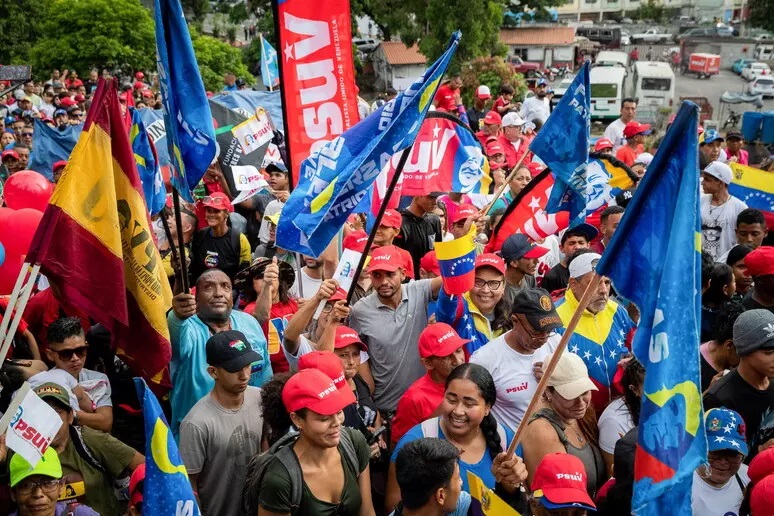Caracas Faces Impending Loss of Citgo Amid Outcry of ‘Theft’ by Maduro Government
The Venezuelan government, under President Nicolas Maduro, has issued a vehement denouncement of the ongoing expropriation process targeting Citgo, the prized Venezuelan oil asset headquartered in Houston. Describing the judicial auction as a blatant violation of the law and tantamount to theft, the Maduro administration has declared its refusal to acknowledge the outcome of what it perceives as a forced sale orchestrated by US authorities.
Charges of Unlawful Expropriation
In a strongly-worded statement, the Maduro government expressed its disapproval of the expropriation proceedings initiated by US authorities against Citgo. Characterizing the forced sale as illegal and unjust, Venezuelan officials have underscored the strategic importance of Citgo as an integral asset of the national oil company PDVSA. The government contends that the auction of Citgo represents yet another facet of the relentless aggression directed towards Venezuela by the United States, further exacerbating the already strained bilateral relations between the two nations.
Rejection of Auction Outcome
Amidst the final stages of the unprecedented judicial auction of Citgo, which aims to alleviate Venezuela’s financial obligations amounting to 21.3 billion dollars resulting from expropriations and debt defaults, the Maduro government stands firm in its refusal to accept the impending outcome. With the bidding deadline having passed last week, the sale of Citgo is on track to be finalized in the coming month, marking a critical juncture in the saga of this high-stakes legal battle.
Challenges to Auction Legitimacy
The auction of Citgo, initiated following a lawsuit filed by mining company Crystallex in a Delaware court seven years ago, signifies a significant departure from traditional norms of sovereign immunity. The legitimacy and implications of enforcing international arbitration awards, as evidenced by the sale of Citgo, raise complex legal and diplomatic questions regarding the sovereignty and jurisdictional boundaries of nations in the global arena.
Opposition Plea for Auction Suspension
As the auction of Citgo progresses amidst escalating tensions, Venezuelan opposition representatives have appealed to Congress to intervene and halt the proceedings for a 60-day period, citing the upcoming presidential election on July 28 as a key factor necessitating a temporary suspension. The request for a pause in the auction underscores the intersecting political and economic dynamics at play, with the fate of Citgo emerging as a pivotal issue with far-reaching ramifications for Venezuela’s future.
Citgo’s Strategic Significance and Operational Performance
Citgo, a linchpin of Venezuela’s energy sector, has been a focal point of contention and scrutiny following its severance of ties with parent company PDVSA in 2019. Operating under the protection of US authorities, Citgo’s three refineries continue to process a significant volume of oil daily, contributing to the company’s substantial net profits of $5.26 billion over the past nine quarters. The operational prowess and financial stability of Citgo underscore its inherent value as a vital component of Venezuela’s economic landscape, further heightening the stakes in the ongoing dispute over its ownership and fate.
In conclusion, the escalating tensions surrounding the auction of Citgo highlight the complex web of legal, economic, and political challenges confronting Venezuela and its international stakeholders. The Maduro government’s steadfast rejection of the auction outcome as a form of theft underscores the deeply entrenched grievances and power dynamics at play in the global energy market. As the fate of Citgo hangs in the balance, the implications of its sale extend far beyond financial considerations, encapsulating broader questions of sovereignty, legality, and international relations in the modern era of geopolitical turmoil.

